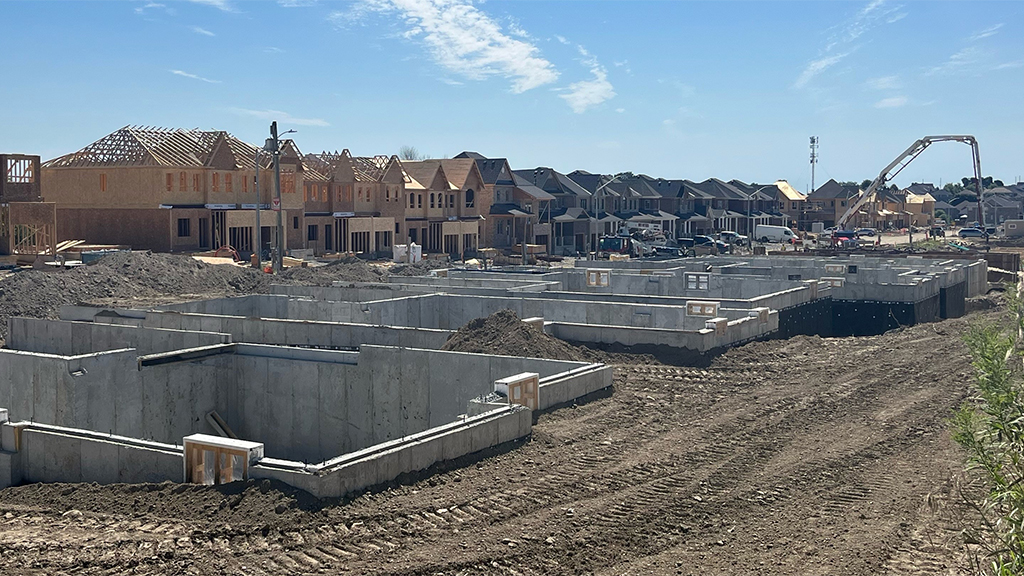It is unlikely the bottom will fall out of Toronto’s condo market this year despite recent reports to that effect says ConstructConnect chief economist Alex Carrick.
Recent media stories quoting an Urbanation report warned, “Ten thousand condos to be delayed this year,” but Carrick said despite a rise in interest rates that cooled housing demand in recent months, Toronto is still an economic “juggernaut” with most of the fundamentals in place for continued growth.
Developers think differently than economists, Carrick said, and interest rates are still below their “normal” rate despite four increases by the Bank of Canada this year.
“I just don’t see that happening,” said Carrick, referring to a possible delay in condo builds. “The fundamentals are still quite strong.
“I am skeptical of having a big cutback in terms of housing activity in Canada, because every time you forecast that it doesn’t come through. And people have been forecasting that the bubble would burst in Canada for years.”
Urbanation president Shaun Hildebrand said one widely circulated story based on his firm’s Aug. 2 report, that stated Urbanation “expects almost 10,000 Greater Toronto Area condo units to be delayed this year as increasing mortgage rates weigh on home sales,” was imprecise.
“I think there was some misinterpretation with what we said. We are talking about condo units launched for presale, not actual housing starts,” said Hildebrand.
“Presale launch volumes can swing year-to-year depending on market conditions. As of Q2 2022, there was an inventory of 36,000 new condos in the GTA that were in pre-construction and were 81 per cent sold on average, so there shouldn’t be much of a disruption to construction starts activity in the near term.”
The 35,000-plus units that were supposed to launch for presales this year, as opposed to starts, would have represented a record high for the market, he said.
“The expectation that we will fall short of that target by 10,000 units actually just keeps us in line with annual pre-sale launch activity averaged over the past five years.
“The media saw that 10,000-unit number and ran with it.”
Other factors cited by Carrick in suggesting the housing market will remain strong in the GTA, with suggestions of a recession “overblown,” include the region’s continuing population increase, strong consumer spending, moderation in the price of oil, continuing job growth, predicted modest but steady GDP growth, Canada’s strong foreign trade balance, major manufacturing investments in the EV sector, continued transit spending, a strong education system that produces valuable employees, and the burgeoning tech sector.
In every month since as far back as 2006, Canada has achieved a higher level of housing starts on a per capita basis than the U.S., Carrick noted.
Given those positive trends, a short-term drop in consumer demand for housing caused by the “shock” of modest interest rate increases is not likely to scare off Toronto developers, Carrick said.
“There’s a whole bunch of other things that you look at, so you’re looking at demographics, look at where the growth of cities is occurring, look for where the population growth is, where things are happening in the suburbs, and so on,” he said. “And that’s where the Toronto area is just crazy, because there’s so much growth here.”
The GTA’s growing adoption of transit-oriented developments alongside its subway and LRT projects is another factor developers like about the region, Carrick said.
“Where those are located, it’s where developers want to build their highrises and their mixed-use projects,” he said.
The July 13 hike in the Bank of Canada’s overnight rate to 2.5 per cent was the fourth of the year, and there may be more, but that is merely a return to normalcy, Carrick said.
“Usually what’s called the neutral rate of interest is thought to be around 3.5 per cent,” he explained. “And that’s where the rate that the central bank is charging is neither stimulative nor contractionary.”
Inflation will probably come down to around five or four per cent and stay there for awhile, and there is no question the economy is slowing down to some degree, he said.
“But on the other hand the jobs market is still extremely tight.”
So where does that leave developers? Carrick asked.
“One of the things that I have discovered is that economists and developers think quite differently. An economist will look at the numbers and say, ‘you know, these numbers aren’t looking so good.’
“Developers don’t think like that, they think, ‘I’ve got to get there first before the competition does’
“If the numbers are generally looking pretty strong, their way of thinking is more gung ho.
“They’ve got animal spirits that economists don’t necessarily have.”
Follow the author on Twitter @DonWall_DCN.











Recent Comments
comments for this post are closed